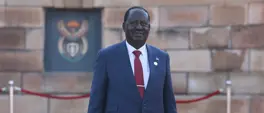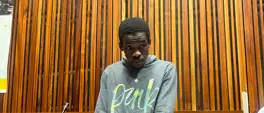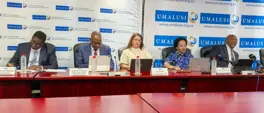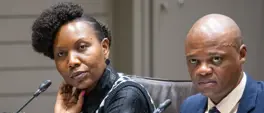South Africa lacks meaningful bargaining power at the G20 table, says leadership expert
Celeste Martin
1 October 2025 | 16:09Do the summit’s themes of solidarity and inclusivity hold weight when millions in the country lack access to jobs, electricity and water?
- Views and News with Clarence Ford
- Clarence Ford
- G20 Summit
- CapeTalk
- Poverty
- Hunger
- Unemployment
- Inequality
- Politics
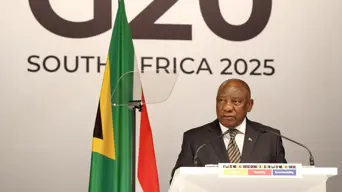
President Cyril Ramaphosa addressed the G20 Finance Ministers' and Central Bank Governors' Meeting at the CTICC in Cape Town on 26 February 2025. Picture: @PresidencyZA/X
CapeTalk's Clarence Ford chats to Brian Mhlanga, leadership and organisational development practitioner and senior lecturer at Milpark Business School.
Listen below:
South Africa's R700 million hosting of the G20 summit is drawing increasing public criticism, with many questioning its value in the face of rising poverty, inequality, and state failure.
Mhlanga says while the summit may carry diplomatic prestige, it remains a 'talk shop', disconnected from the lived reality of most South Africans.
"If you are in politics or government, obviously one will have a different view, but if you are sitting on the other side of society, where you are disenfranchised, where you are marginalised, you actually think it is a waste of money... and what you need now are your basic needs met. However, there is value to both polarising views around it."
- Brian Mhlanga, leadership and organisational development practitioner
He notes that while global cooperation is necessary, South Africa lacks meaningful bargaining power at the G20 table.
"How are we showing up at that table with all the big players? Are we showing up as an equal partner, or are we showing up as a partner that is looking for aid or assistance and for the crumbs? Are we shaping the agenda?"
- Brian Mhlanga, leadership and organisational development practitioner
RELATED: What are the benefits of South Africa assuming the presidency of the G20?
Mhlanga challenges whether the summit’s themes of solidarity and inclusivity can hold weight when millions in the country lack access to jobs, electricity, and even water.
The immediate costs, he warns, highlight how the broader neoliberal framework supporting G20 policy (including deregulation and privatisation) has deepened inequality across the continent.
Mhlanga suggests the summit risks becoming yet another missed opportunity unless it confronts the systemic causes of global and local inequity.
Scroll up to listen to the full conversation.
Get the whole picture 💡
Take a look at the topic timeline for all related articles.
Trending News
More in Local
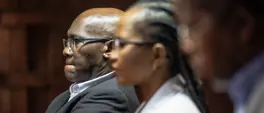
15 October 2025 18:07
Investigating Directorate says magistrate in Crime Intelligence case shouldn't have recused himself

15 October 2025 17:59
CPUT fee hike concerns lead to task team and student protest

15 October 2025 16:58
SIU finds highly-connected businessmen were irregularly awarded tenders to the tune of R2bn




